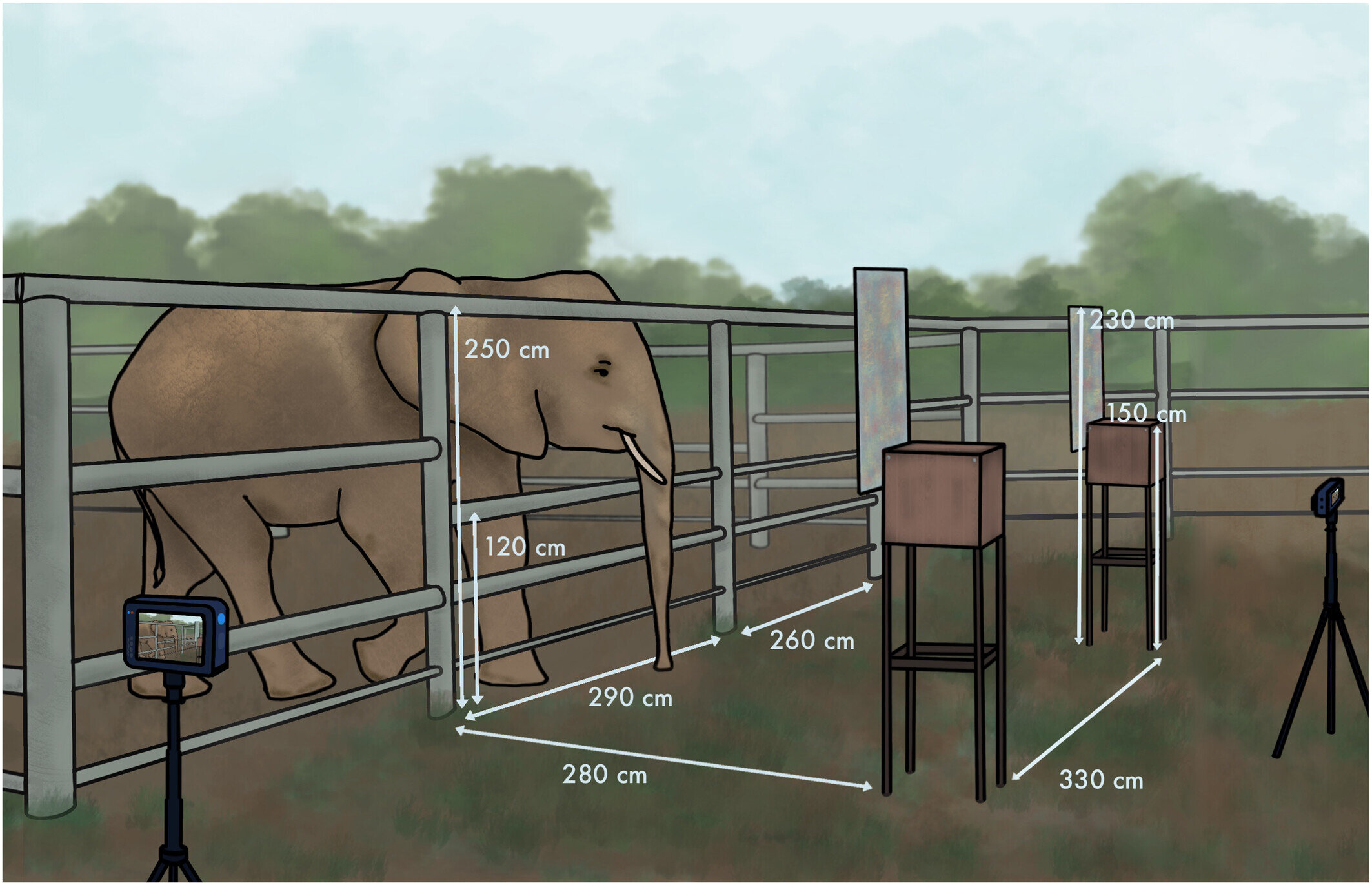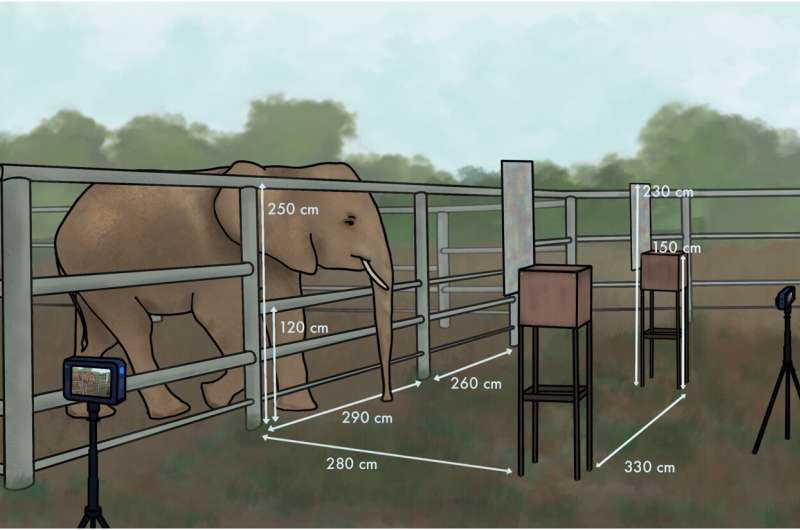

An elephant never forgets, as the saying goes. In fact, there is evidence that proboscideans still remember the waterholes they once visited decades later. They also often recognize fellow elephants that they have not encountered for a long time. But does their excellent long-term social memory also extend to members of other species?
“There are exciting stories of Asian elephants that suggest this,” said Martin Kränzlin. He carried out a study as part of his Bachelor’s thesis under the supervision of Professor Christine Böhmer (Zoology and Functional Morphology of Vertebrates working group) at the Zoological Institute at Kiel University.
“For example, it has been reported that elephants threw stones at a former owner they didn’t like when they met again many years later. However, these are only anecdotal reports; this question has not yet been scientifically investigated.”
Move from Berlin to Lower Saxony 13 years ago
The study, now published in the journal Zoo Biology, provides the first solid evidence that elephants can at least recognize the scent of their keepers, even after a long time. The study was carried out in cooperation with the Serengeti Park in Hodenhagen, Lower Saxony. It is home to two female elephants that moved from the Berlin Zoo to Hodenhagen 13 years ago—Bibi and Panya.
“We contacted the former zookeepers in Berlin, a total of three men,” said Kränzlin, who now works at the Wilhelma Zoological-Botanical Garden in Stuttgart. “For our experiment, they wore a T-shirt for eight hours, which we later used as a scent stimulus. We also recorded a short spoken sentence from them and took portrait photos of them.”
In the actual experiment, the researchers set up two racks next to each other outside the enclosure. On one of them, they presented a stimulus from a former keeper—for example, a T-shirt that had been worn or a life-size print of a portrait photo. On the other, they presented the corresponding stimulus of a person unknown to the elephants.
Animals were more interested in the scents of former keepers
The animals could see both racks from their enclosure, but couldn’t reach them with their trunks. Nevertheless, they regularly tried to do so, in order to examine the stimuli presented more closely. “We filmed the behavior of each elephant we tested,” said Kränzlin. “We then used the videos to analyze how often and for how long the animal extended its trunk towards the racks.”
The hypothesis behind this: If the stimulus presented seems familiar to the pachyderm being tested, this should arouse greater interest. Therefore, Bibi and Panya should try to reach such stimuli more frequently and for longer.
In fact, they did so—but only if the stimulus presented was a T-shirt. In contrast, there were no statistically significant differences between their reactions to the portrait photos and the spoken sentences. This is not entirely surprising—the proboscideans have an excellent sense of smell, but their sight is relatively blurred.
“Our results are a clear indication that elephants can at least remember the scent of their former keepers, even decades later,” said Professor Christine Böhmer from Kiel University, who led the study. “Nevertheless, further studies with a larger number of individuals are needed to confirm the results.”
The results are also interesting for keeping elephants in zoos. Because if the pachyderms really do remember their keepers for so long, then this suggests that they are pretty important to the animals. A stable relationship with their human caregivers can therefore potentially have a very positive effect on the well-being of zoo elephants.
More information:
Martin Kränzlin et al, Do African Savanna Elephants (Loxodonta africana) Show Interspecific Social Long‐Term Memory for Their Zoo Keepers?, Zoo Biology (2024). DOI: 10.1002/zoo.21871
Provided by
Kiel University
Citation:
Study suggests elephants remember zookeepers after many years (2024, October 8)
retrieved 9 October 2024
from https://phys.org/news/2024-10-elephants-zookeepers-years.html
This document is subject to copyright. Apart from any fair dealing for the purpose of private study or research, no
part may be reproduced without the written permission. The content is provided for information purposes only.